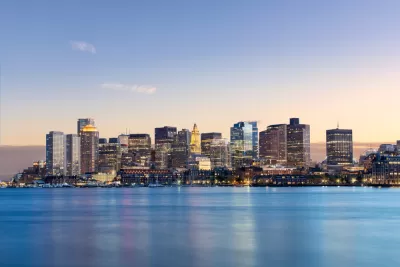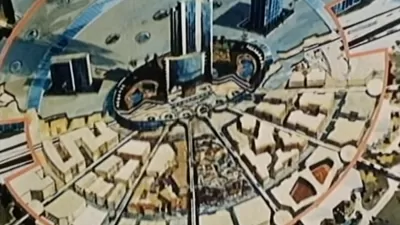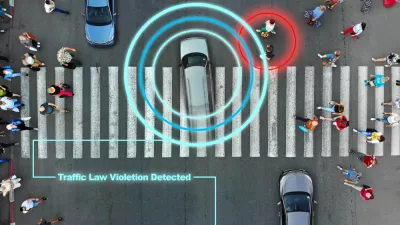After some notable disappointments in the development of 'smart city' projects, experts are increasingly critical of the movement to use tech to solve urban problems.

In a piece on Treehugger, Lloyd Alter outlines some of the criticisms of the 'smart city' concept, reminding readers that, despite the promises made by "smart garbage bins" or "smart parking systems," "almost every smart solution listed here is fixing a problem that could be solved in a simpler, low-tech way instead of adding a layer of complexity and 'smart.'" Planetizen previously covered Shannon Mattern's book A City Is Not a Computer, which describes the ways that the mentality prevalent among 'smart city' proponents clashes with the realities and unpredictabilities of real cities.
For Alter, the key is getting "back to basics" when it comes to urban planning and sustainability, quoting Shoshana Saxe: "Rather than chasing the newest shiny smart-city technology, we should redirect some of that energy toward building excellent dumb cities—cities planned and built with best-in-class, durable approaches to infrastructure and the public realm."
Alter quotes multiple experts who similarly question the value of introducing too much technology in lieu of simpler, low-tech solutions that already exist—if we have the political will to implement them. According to architect Michael Eliason, "we have had decades of politicians ignoring the data on climate change—prioritizing gizmos instead of sustainable mobility, socially and economically diverse ecodistricts, and car-free spaces. If we are to seriously tackle adapting to climate change, it is these types of things we will need to prioritize."
FULL STORY: Enough With 'Smart Cities'—We Need Cities Done Right

Planetizen Federal Action Tracker
A weekly monitor of how Trump’s orders and actions are impacting planners and planning in America.

Map: Where Senate Republicans Want to Sell Your Public Lands
For public land advocates, the Senate Republicans’ proposal to sell millions of acres of public land in the West is “the biggest fight of their careers.”

Restaurant Patios Were a Pandemic Win — Why Were They so Hard to Keep?
Social distancing requirements and changes in travel patterns prompted cities to pilot new uses for street and sidewalk space. Then it got complicated.

Platform Pilsner: Vancouver Transit Agency Releases... a Beer?
TransLink will receive a portion of every sale of the four-pack.

Toronto Weighs Cheaper Transit, Parking Hikes for Major Events
Special event rates would take effect during large festivals, sports games and concerts to ‘discourage driving, manage congestion and free up space for transit.”

Berlin to Consider Car-Free Zone Larger Than Manhattan
The area bound by the 22-mile Ringbahn would still allow 12 uses of a private automobile per year per person, and several other exemptions.
Urban Design for Planners 1: Software Tools
This six-course series explores essential urban design concepts using open source software and equips planners with the tools they need to participate fully in the urban design process.
Planning for Universal Design
Learn the tools for implementing Universal Design in planning regulations.
Heyer Gruel & Associates PA
JM Goldson LLC
Custer County Colorado
City of Camden Redevelopment Agency
City of Astoria
Transportation Research & Education Center (TREC) at Portland State University
Camden Redevelopment Agency
City of Claremont
Municipality of Princeton (NJ)





























